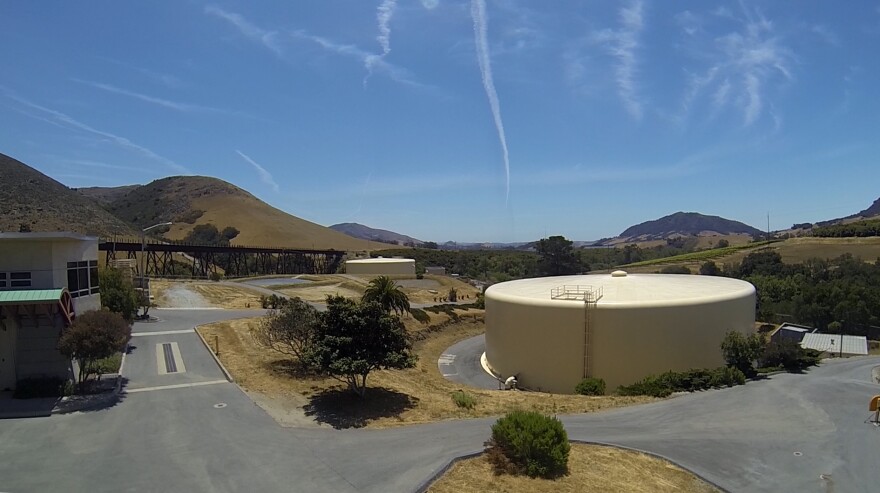San Luis Obispo’s 2020 Water Quality Report shows zero violations of health regulations.
Jason Meeks is the supervisor of the city’s water treatment plant. He has been working in water and wastewater for nearly 22 years.
Meeks said one of the most important things for city residents to know about the 2020 Water Quality Report is that it only shows substances that were detected in the water.
“We sample for a lot of different things every year. The only things that are in this report are things that actually had a detection limit,” Meeks said. “So if there was nondetect, that means it wasn’t in our water and it’s not included in the report. While the list is fairly small, a lot of things have been sampled the prior year and every year.”
Meeks said they test the city’s source waters from Lake Nacimiento, Santa Margarita Lake and Whale Rock Reservoir. They also test the plant’s treated water.
He said they sample for things that the state or federal government has determined can have adverse health effects. This includes substances that are currently regulated as well as ones that the EPA plans to regulate in the future, like medicines that are poured down the drain.
Meeks said the city’s samples have turned up no trace of agriculture or industrial chemicals as well as no heavy metals, so those things aren’t listed on the report.
Meeks said the city takes special action to sample for lead and copper. He said those substances typically come from corrosion of plumbing systems.
San Luis Obispo has no lead or copper in its pipes, but a lot of the older neighborhoods have lead solder in the pipes.
Meeks said the city hasn’t had any violations of its water quality since a THM violation in 2015.
THM’s are byproducts that occur when chlorine compounds that are used to disinfect water react with other naturally occurring chemicals. Meeks said a buildup of THM’s could be carcinogenic.
“Since then, we’ve spent a lot of money to address that THM issue and we’ve actually lowered our levels through treatment to an acceptable level," Meeks said.
According to Meeks, chlorine is safely used to disinfect the city’s water and is constantly monitored to maintain health and safety standards.
A link to the full water quality report is linked here.



